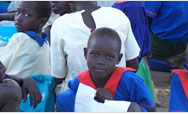|
Agriculture represents the primary engine of economic growth in Rwanda. Rapid agricultural development fosters diversified rural enterprise development, sustainable livelihoods, incomes, and employment. USAID’s agricultural sector activities emphasize intensification and commercialization of value-added agricultural production and marketing.
During its first full season, the Masaka washing station purchased almost $27,000 worth of cherries from more than 400 local farmers. All thirty-eight tons of the processed beans were sold - Royal Coffee California bought nineteen tons, Drucafe from England bought fourteen tons, and the remaining six tons went to U.S. importers Intelligentsia and BD Imports. The station, which re-opened its doors in 2002 after being dormant for more than a decade in the wake of Rwanda’s 1994 genocide, guarantees a market for local farmers looking to sell arabica which can be sold as specialty coffee on the world market and is a pricier bean than commercial robusta.
Specialty coffee from East Africa could eventually command as much as 18% of the world market. Although much of this comes from Kenya and Ethiopia, Rwanda is starting to make its way back into the market, due in part to the USAID-funded project.
The washing station in Masaka is just one small piece of the project. USAID is helping promote broad-based economic growth in Rwanda by raising the value of agricultural products – like coffee – through better production and marketing. For Mutibagirana, a father of ten, better coffee means a better life.
| 

